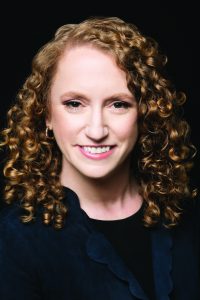The PEN Pod: On Threats to Journalists, Information Ecosystems, and Critical Race Theory

Photo by Beowulf Sheehan
Every Friday, we discuss tricky questions about free speech and expression with our CEO Suzanne Nossel, author of Dare to Speak: Defending Free Speech for All, in our weekly PEN Pod segment “Tough Questions.” This week, we discuss the revelations that the Trump administration was engaged in a months-long secret court battle for access to a CNN reporter’s records, discussions around the origins of COVID-19, and threats to academic freedom. Check out the full episode below (our interview with Suzanne begins at the 20:46 mark).
On Lingering Threats to Journalists from the Trump Legacy
“We sued the Trump administration under the First Amendment for its threats and acts of retaliation against journalists, precisely because they were on the war path, and we knew that they looked at serious, credible journalism as a threat to their ability to maintain power, and that if the truth was reported about what that administration was doing, it reflected very poorly and would hurt them. And so, they sought to thwart journalists and media organizations in a whole variety of ways. This revelation that in fact, they sought not just work emails but personal emails and phone records of journalists as part of a leak investigation is of a piece with their overall hardball tactics of wanting to go after journalists, menace journalists, send a message to journalists that if they skated close to any lines, there could be severe consequences. . . .
“The gag order—what it illustrates is just the breadth and the power that the Justice Department has had to silence and stifle inquiry and exposure of its own efforts to probe into the work of investigative journalists, and that’s what caught people in the press freedom community somewhat by surprise.”
On Discussions of the Origins of COVID-19
“[There] is this complicated interplay between conspiracy theory and outlandish and unpredictable truth. Just because something sounds like it could be the stuff of a conspiracy theory doesn’t necessarily mean that it is. Sometimes, those wild revelations or suspicions turn out to be true. So as a kind of information ecosystem, how do we process notions, postulations, theories, hypotheses that have some of the earmarks of something that could be false, but also may have some grounding in truth and deserve to be investigated?
“I think when it comes to something as consequential as the origins of COVID-19, which ground our entire globe virtually to a halt for over a year, we have to go down every pathway. I think the fact that it could be conspiratorial in nature, that it may be baseless, should not mean that it isn’t fully investigated. I think this is a place where we really have to err on the side of looking at every possible theory. That happens sometimes. When they investigate, for example, an airplane crash, they look at a lot of outlandish theories—and sometimes they can never find an explanation—but they don’t exclude anything, and I think that should be the premise here.”
On Legislative Crackdowns on the Teaching of Critical Race Theory
“I think what’s happening here is there’s this sense that the effort to address the legacy of systemic racism in this country is ‘going too far,’ and that it’s gone too far in the direction of demonizing white people or talking about the history of the country in overly negative terms, negating the contributions of, say, the Founding Fathers or the value of the U.S. Constitution or Bill of Rights because it’s all seen through this frame of propagating systemic racism.
“I think of this as one of these moments of a pendulum swinging, and the pendulum never swings to the middle. For a long time, these ideas have really been shunted to the margins, and we haven’t thought enough about how race has determined what our society looks like. Now the pendulum has swung, and . . . I’ve heard of cases where maybe it does go too far, and children are being introduced to these notions in ways that may make them feel bad about themselves. For example, as a free speech defender, I hope what comes out of this is not a turning away from the First Amendment or the idea that the First Amendment is valueless, because it too is a product of a system that had racism as a key part of it. I can accept that.
“But I really think these laws trying to banish critical race theory from curricula are a serious threat to academic freedom and free speech. I just don’t believe it is the role of legislatures to dictate what can and cannot be taught in a classroom. That’s why we have teachers and educators, and we ask them to use their judgment. I think by and large, it’s certainly not perfect, but they use sound judgment. I think, also, when you banish something or put it off-limits, that heightens its appeal and the intrigue that it holds. It creates this social battle over it. I think this is very wrongheaded. It’s something that we oppose as PEN America, and it’s something that we’re going to be doing more work on.”






